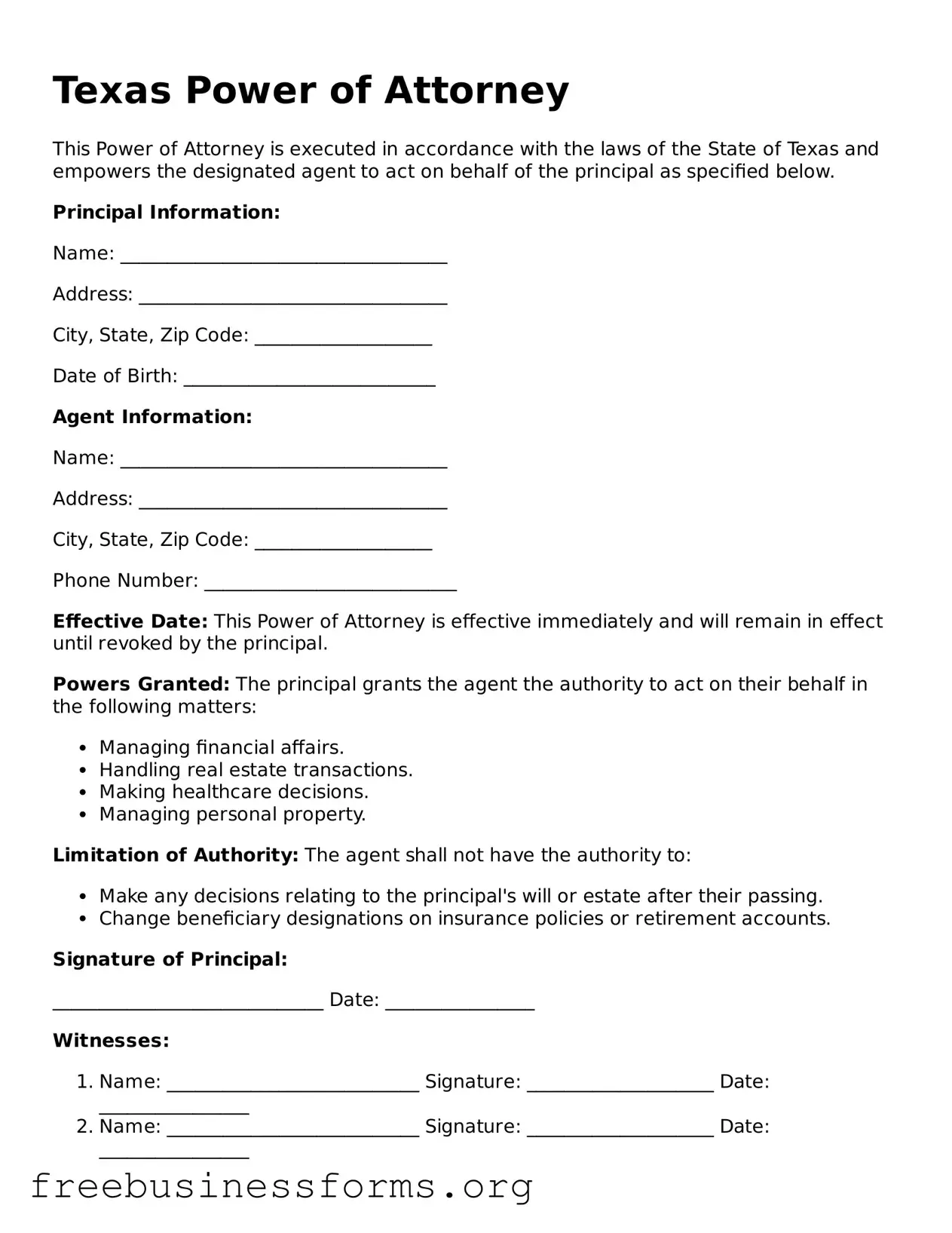Blank Power of Attorney Template for Texas
A Power of Attorney form in Texas is a legal document that allows one person to grant another person the authority to make decisions on their behalf. This form can cover a wide range of matters, including financial and healthcare decisions. Understanding the implications and uses of this document is crucial for anyone considering granting or receiving power of attorney in Texas.
Open Form Here

Blank Power of Attorney Template for Texas
Open Form Here

Open Form Here
or
↓ PDF File
Quickly complete this form online
Complete your Power of Attorney online quickly — edit, save, download.